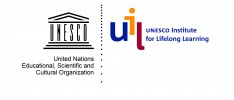Real world learning draws students to unconventional school
 Higher Ed Tech News and Research ~ Ray Schroeder, editor. Three 10th-graders gathered in a pod working on a project they hope would ultimately lead to more civil discourse in America. More...
Higher Ed Tech News and Research ~ Ray Schroeder, editor. Three 10th-graders gathered in a pod working on a project they hope would ultimately lead to more civil discourse in America. More...#10: Is it time to rethink the term nontraditional student?
 By Meris Stansbury. Should higher education rethink what makes a “traditional” student today? Data from the National Center for Education Statistics (NCES) on students applying for financial aid highlight the ever-increasing need for colleges and universities to diversify their programs and make more available online education. More...
By Meris Stansbury. Should higher education rethink what makes a “traditional” student today? Data from the National Center for Education Statistics (NCES) on students applying for financial aid highlight the ever-increasing need for colleges and universities to diversify their programs and make more available online education. More...
Vets face uphill fight getting college credit for military training
 Submitted by Stefanie Botelho. Steve Mayou was dumbfounded when he was told he’d have to take courses in introductory physics and basic math on his path to a bachelor’s degree in sustainable building science and technology. More...
Submitted by Stefanie Botelho. Steve Mayou was dumbfounded when he was told he’d have to take courses in introductory physics and basic math on his path to a bachelor’s degree in sustainable building science and technology. More...
UIS Chancellor Susan Koch: Nontraditional becoming traditional at UIS
 Higher Ed Tech News and Research ~ Ray Schroeder, editor. Adult learners, sometimes referred to as “nontraditional students,” have been a growing presence on college campuses for several years. More...
Higher Ed Tech News and Research ~ Ray Schroeder, editor. Adult learners, sometimes referred to as “nontraditional students,” have been a growing presence on college campuses for several years. More...
Shedding Light on Adult Learning and Education in the Asia-Pacific Region
 In a special Thai celebration to launch the third Global Report on Adult Learning and Education (GRALE III) in the Asia-Pacific region, participants lit candles to symbolize the light shed by the report on the important issue of adult learning and education (ALE). The launch event, which took place from 24 to 26 November 2016, in Bangkok in Thailand, was part of a Policy Forum on Youth and Adult Learning and Education, co-organized by International Council for Adult Education (ICAE), the Asia South Pacific Association for Basic and Adult Education (ASPBAE), the Institute for International Cooperation of the German Adult Education Association (DVV International), UNESCO Bangkok and the UNESCO Institute for Lifelong Learning (UIL). More...
In a special Thai celebration to launch the third Global Report on Adult Learning and Education (GRALE III) in the Asia-Pacific region, participants lit candles to symbolize the light shed by the report on the important issue of adult learning and education (ALE). The launch event, which took place from 24 to 26 November 2016, in Bangkok in Thailand, was part of a Policy Forum on Youth and Adult Learning and Education, co-organized by International Council for Adult Education (ICAE), the Asia South Pacific Association for Basic and Adult Education (ASPBAE), the Institute for International Cooperation of the German Adult Education Association (DVV International), UNESCO Bangkok and the UNESCO Institute for Lifelong Learning (UIL). More...
Helix releases guide to adult enrollment success
 Submitted by Stefanie Botelho. There’s no doubt that institutions looking to grow in today’s competitive higher education market face significant challenges. Adult learners have taken their place as the new traditional students, bringing to the classroom a very different set of needs. More...
Submitted by Stefanie Botelho. There’s no doubt that institutions looking to grow in today’s competitive higher education market face significant challenges. Adult learners have taken their place as the new traditional students, bringing to the classroom a very different set of needs. More...
Latvia - adult education plan 2016-20 approved by the government
 In 2016, the Latvian Government approved the Adult education plan 2016-20 to support creating a unified and sustainable national adult education system. More...
In 2016, the Latvian Government approved the Adult education plan 2016-20 to support creating a unified and sustainable national adult education system. More...
Atelier « école » ou comment mettre en place des ateliers sur le thème de l’école avec des adultes peu ou pas scolarisés
Lire et Écrire propose cet atelier sur 3 jours: les 9, 13 et 22 décembre 2016.
Le but de ces journées est de permettre aux personnes travaillant dans le secteur de l’alphabétisation, de développer des connaissances sur le thème de "l'école" afin de pouvoir mieux aider les personnes en alphabétisation qui soit ont eu un vécu difficile en ce qui concerne l'école, soit ont des enfants scolarisés qu'ils aimeraient pouvoir aider. Voir l'article...
La formation pour adultes au 21e siècle: continuons d’avancer!
Si les voitures marchent à l’essence, l’éducation, elle, fonctionne à l’énergie. Elle fonctionne grâce à l’énergie des étudiants, des professeurs, de l’administration, des parents, et de tous les acteurs de l’éducation. Il nous faut établir la part de cette énergie qui contribue à la progression des étudiants, et celle gaspillée par la frustration, l’agacement, le décrochage scolaire et les échecs. Voir l'article...



/https%3A%2F%2Fprofilepics.canalblog.com%2Fprofilepics%2F1%2F0%2F1076071.jpg)